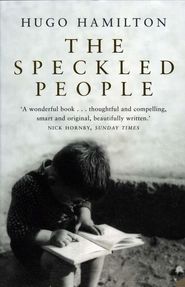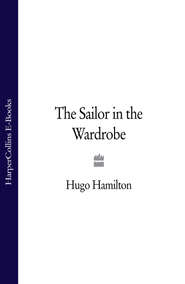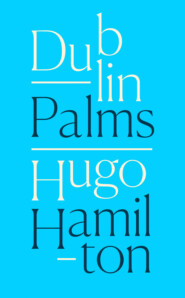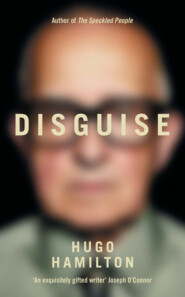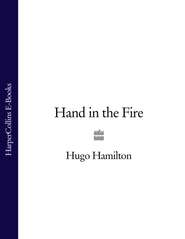По всем вопросам обращайтесь на: info@litportal.ru
(©) 2003-2024.
✖
The Last Shot
Автор
Год написания книги
2018
Настройки чтения
Размер шрифта
Высота строк
Поля
The children who had come to watch this spectacle went back to the square to play, chasing, trying to take a scarf off each other. There were three girls and a boy; along with a dog who was trying to join in with their game. An over-friendly town dog who had always tilted his head and followed every inhabitant through the streets with equal curiosity, occasionally receiving a pat on the head from a German soldier, or the German woman in the red coat, coming from Mass. He was everybody’s friend.
The idiocy of impartiality.
The dog chased the children around the square, keeping his eyes on the scarf, inevitably tearing at one of the girls’ clothes instead of the scarf. The game was stopped and one of the older girls got cross, clouting him over the head. The girl whose dress was caught in the dog’s mouth went on giggling as though she had been caught out as part of the game. When the dog eventually let go, the children tried to chase him away, but he stayed with them, at a distance, until they began to chase each other again and forgot that he was a dog. He was one of them.
Outside the pub U Somolu, where the National Committee was still in session, still negotiating with the Germans, a crowd, mainly men, had gathered to celebrate. They wanted to add voice to victory. They were told the pub was closed. It was too early to celebrate. Jaroslav Süssmerlich came out in person to explain that, if anything, things were going badly. The latest news from Prague was that German reinforcements were regaining control of the capital. The men outside announced their readiness to join the uprising by attacking the garrison. But the garrison held Czech hostages. An attack was impossible. Süssmerlich gave his men something else to do.
The people of the town went away and began to remove the German street signs, replacing them with rough, hastily painted Czech names on wood. They had reclaimed their town. Above the town, the sky was a celebration. From time to time, sunlight broke out over the hills, over the roof-tops of Laun, lighting up the calm columns of smoke like blue angels. There were no cars in Laun. Nobody owned very much. All they owned was their place in the world.
Some of the people went into the church to give thanks to God. Others went home to listen to the radio in groups, waiting for the Russian liberation. Others cooked food, fecklessly using up ingredients they might have rationed carefully for months up to then.
Before nightfall, a young couple arrived at the door of the pub asking to speak to the leader of the National Committee. They were told to go away. But they insisted.
‘Just for one minute,’ the girl said hopefully.
When they wouldn’t go away, Süssmerlich finally agreed to speak to them. They had already received permission from their parents to marry. They had postponed the wedding for weeks, knowing it was wiser to wait for the end of the war. They had obtained permission from the priest in the town. All they needed now was permission from the National Committee. They wanted to marry the following morning.
Süssmerlich became angry.
‘Can’t you control your passions? The war is not over yet.’
But the intending couple returned some time later accompanied by the priest. The bride appealed with her eyes. The priest spoke on their behalf and explained that the couple wanted to get married on the day Czechoslovakia was liberated. On VE day.
Süssmerlich softened. Who could fail to understand such a request? He gave his permission and wished them luck in their lives. The couple thanked him. The priest blessed the revolution.
8 (#ulink_e290e3f0-ff63-5bc6-8c8c-54d802013990)
By evening, it was threatening to rain again. You could smell it in the air. And the clouds had built up over Bohemia.
Hauptmann Selders, having postponed his evening meal several times, finally took a late meal at his office. He would not go over to the officers’ mess. The kitchen staff brought a table which they covered with a linen tablecloth. He ate his meal with some of the officers keeping him company.
In the next two rooms, the ongoing war was being monitored by Officer Kern and his radio operators. They listened to the German signal: Radio One from Prague. Someone else listened to the free Czech signal from Prague. Somebody kept tuning in to the BBC in London, who were giving almost live coverage of the Prague uprising. On another set, Officer Kern occasionally tuned in to Moscow. The news was getting worse.
After his dinner, Hauptmann Selders shared a glass of brandy with his officers. The kitchen staff came back and swiftly cleared away the table and the used plates.
Bertha, who had come back from her own evening meal, was also offered some brandy, but declined. It was a toast to the end. There was a peculiar atmosphere of calmness; camaraderie. Hauptmann Selders dropped his role as commander for a more friendly, fatherly tone and began to talk to everyone in the room about themselves.
There was a strange silence in the office. At any moment the phone could ring, or a technician could come in from the room next door with news that would change everything irreversibly. In spite of that, Hauptmann Selders asked each person what they would do after the war. He enjoyed listening to their plans, one by one. Officer Albert said he would go back and resurrect his father’s printing business in Vienna. Officer Kern said he would join his wife in Nuremberg and start a gramophone shop. Others said they were keeping an open mind, perhaps business, perhaps a profession. One of them had already studied law. Bertha Sommer, surprised that she was asked at all, said she would hope to study medicine.
Hauptmann Selders revealed for the first time that he was an archaeologist before the war. He wished them well. Then he dismissed the gathering and told them all to get as much sleep as possible. A roster of officers would have to be selected to monitor events throughout the night. Bertha could stay in her room until morning, unless he sent for her.
Officer Kern volunteered to remain at his post, in the communications room. In the corridor, as the officers dispersed, Kern casually asked if his watch was showing the same time as everyone else’s. Bertha looked at her watch. It was five to 10. And just when nobody was looking, Kern winked at her, pointing at his watch.
So the escape plan was on. Bertha crossed the square in a fever of excitement, not only at the thought of this clandestine and dangerous scheme, but at the idea of a man winking at her. It wasn’t a suggestive wink, but a serious, conspiratorial sign. It had sent a rush of blood to her head. She was amazed how one signal like that from a man could make her feel so worked up and so secure at the same time. Whatever doubt she had about the plan was erased entirely with Kern’s wink.
She looked around and saw the Red Cross vehicle by the gates. Once again, she remembered Kern’s warnings. The fear of Russian captivity gripped her more than any other immediate fear.
She went to her room and sat down on the bed. She looked at herself in the mirror. She looked at her watch again and was afraid that an hour was too long to wait; she might change her mind again. By 11 o’clock, the inbred fear of the Reich might break out once more and restrain her. She thought of the most horrific sight she had seen, during the war, on her way to Prague; the sight from the train of men hanging, their heads bowed, arms limp, cardboard signs hung around them in warning to others.
She sat at the table and wrote in her diary to keep her mind off the worst. She put down a new heading: ‘Evening 5 May’. She could put none of her real thoughts down. It would have left incriminating evidence. Not even Officer Kern’s name. She looked around the room for something. She heard the rain beginning to fall outside the window and finally had something to write: ‘Rain’.
It was the longest hour she had ever spent in her room. The months of waiting from January to May seemed to have been packed into that hour. She was clear in her mind what she was about to do. If they were caught, she would be punished as a deserter. Or aiding deserters. She could expect to be hanged. Under Schörner, there was no leniency. She was confused. Only the fear of the Russians convinced her to go ahead; to run.
When the time came, Bertha Sommer packed her diary in her bag and brushed her hair. She thought about perfume but decided against it. She put on her coat and hat, took a last look at the room and went out into the corridor, closing the door behind her. From one of the corridor windows she could see the Red Cross vehicle by the gates. The constant rain made it look further away. Kilometres away. A great rush of excitement hit the base of her stomach. She walked down the stairs and out through the door on to a porch where she was temporarily sheltered from the rain at least.
The rain bounced on the surface of the square. It beat down on every square inch of the roof and collected with a noisy gurgle in the drains.
There was nobody around as far as she could see. She decided that she would have to keep to the side of the buildings, both to avoid being seen and to avoid getting wet. She could go from one porch or doorway to the next. The rain made her think of her mother. What would her mother say? Bertha Sommer, what are you doing? You have never done anything illegal in your life. This felt suddenly like a great crime. She kept all doubts away with the reminder of avenging Russians; merciless enemies. She put it out of her mind and tried to concentrate on getting across the square to the Red Cross vehicle.
She made it to the next doorway. She put her bag down on the ground and waited. She looked everywhere to see if anything moved. The rain was relentless. It would go on all night, it seemed, just like the night before.
Bertha blessed herself and ran to an arch next to the main administration building. From there she had a choice of going up a few steps and running along a raised wooden platform along the façade in front of the administration block, or along the square itself, in front of the platform. The raised porch or platform was sheltered by an awning, but its wooden boards might be far too noisy and arouse attention. She finally chose the square. But just as she had begun to run along the outside, she heard a door opening and saw extra light spilling out on to the square. If it wasn’t for the railing, she would have been seen straight away.
She crouched down on the outside of the platform, getting soaked. She felt the rain getting in at the back of her neck. She saw the rain light up orange as it travelled past the light. She then heard Hauptmann Selders’s voice. He was standing on the porch, condemning the weather. She couldn’t move. She had no idea what to do. She knew her coat and her hat and her hair were getting soaked and realized how irrelevant it was. If she was caught there with her bag, she was finished.
Hauptmann Selders stayed on the porch gazing out at the rain. If he had looked down, he would have seen her. Every time she looked up, the strong rain blinded her.
Bertha crept slowly back towards the arch, holding her bag against her chest. She was ready to drop the bag. Ready to say she had come out because she felt ill. She made it back to the arch.
It was more than she could endure. With her back against the wall, she clutched the handles of her bag in her fist. Now, even the thought of Russian captivity seemed better than being caught there in the arch, with her bag, attempting to flee; a common deserter.
She had changed her mind. She was no good at breaking the law. You needed a devious mind. You needed to have done it before. She was weak. Certain that she had already been seen.
She heard the heavy sound of boots hurrying along the platform. A group of soldiers passed her by with their heads down against the rain. Just as they passed her hiding in the arch, they took a sharp turn and ran across the square away from her.
All Bertha Sommer wanted to do now was to get back to the safety of her room. The escape was far too risky, she decided. As soon as she heard the door to the administration block close, she checked the square and ran back to her own accommodation building.
Back in her room, she felt relieved. She took off her coat and her hat. Everything was soaked. She dried her hair. And slowly she began to regret that she hadn’t gone the whole distance. She had gone so far. She was let down by her own fear and there was no way she would try it again. Her courage began to come back. But it was too late. She felt despair and anger at the fact that she had not made the escape with Kern. She felt she would never see home again.
Just before 11.45 she went out into the corridor to see if the Red Cross vehicle was still there. It was. She could see no movement around the vehicle. Once again she thought of making a run for it, abandoning all caution. But then she saw the vehicle lights come on. It began to move towards the gates. Then it was gone. Her chance had disappeared.
Bertha went back into her room and settled down for the night. She couldn’t sleep. She could only think of Officer Kern waiting for her. She had let him down. He would surely think she had decided to remain loyal to the army. And he was the only man she could trust around here. Now she was on her own.
Finally, she fell asleep, only because she was exhausted and because the constant rain beating on the window mesmerized her.
In the morning, she got up and thought of the Red Cross car making its way towards the German border. She tried to visualize how far they would have got by now. She had a quick breakfast and reported for work early, at 5.45. The rain had eased off. It felt ridiculous to walk so confidently past the arch where she had been hiding only hours before.
Hauptmann Selders was already in his office surrounded by some of the officers. They were talking about Hriskov. The arms dump had fallen into Czech hands. During the night, soldiers had returned to the garrison on foot with the news. There was fighting to the north as well. She heard one officer come in with a report that one of the Red Cross vehicles had disappeared. Nothing more was said. She asked if there was anything she could do. She took the phone and tried to get a line to the capital.
An hour later, she got a real fright. Bertha couldn’t tell whether she reacted with shock or sheer joy when she saw Officer Kern walk into the office with a report. German reinforcements had entered Prague and were set to regain control of the city. She ignored the information. She couldn’t believe it was Officer Kern speaking. He had stayed behind. Why? She wanted to explain everything to him. But he went out again, avoiding her gaze.
It became clear that Kern had waited for her. Had he passed up a golden chance for her? To stay behind with her? The implication of such loyalty weighed on her thoughts.
9 (#ulink_c354a0af-90b5-5f60-bc56-d9e35d1ef5ff)
The first time I went to Laun – now Louny – was late in 1985. First impressions are those of a sleepy town with a massive bus station which is completely out of proportion to the size of the town. The bleak tar-macadamed bus station offers little shelter except for a row of covered passenger islands. The bus routes which pass through the station give you some idea of the industry and crop farming in that part of Bohemia. It’s like being dropped off at the edge of an industrial estate. I arrived there in the afternoon, in October, the best time to travel anywhere.
Around the bus station there was nothing but derelict land, overgrown with weeds. In the distance, I could see some isolated high-rise apartment blocks. The town itself had no colour. It’s got an old square and a remarkable church. But it’s not a place you would see on a tourist brochure. The people at the tourist office in Prague looked surprised that I wanted to go to Louny. What would a foreigner want in Louny? There were many places of interest, with ancient castles, like Kutná Hóra, or Karlovy Vary. And then there was Theresienstadt, not far from Louny, Czechoslovakia’s Nazi transit camp where the ashes of 20,000 Jews were said to have been thrown in the river.






